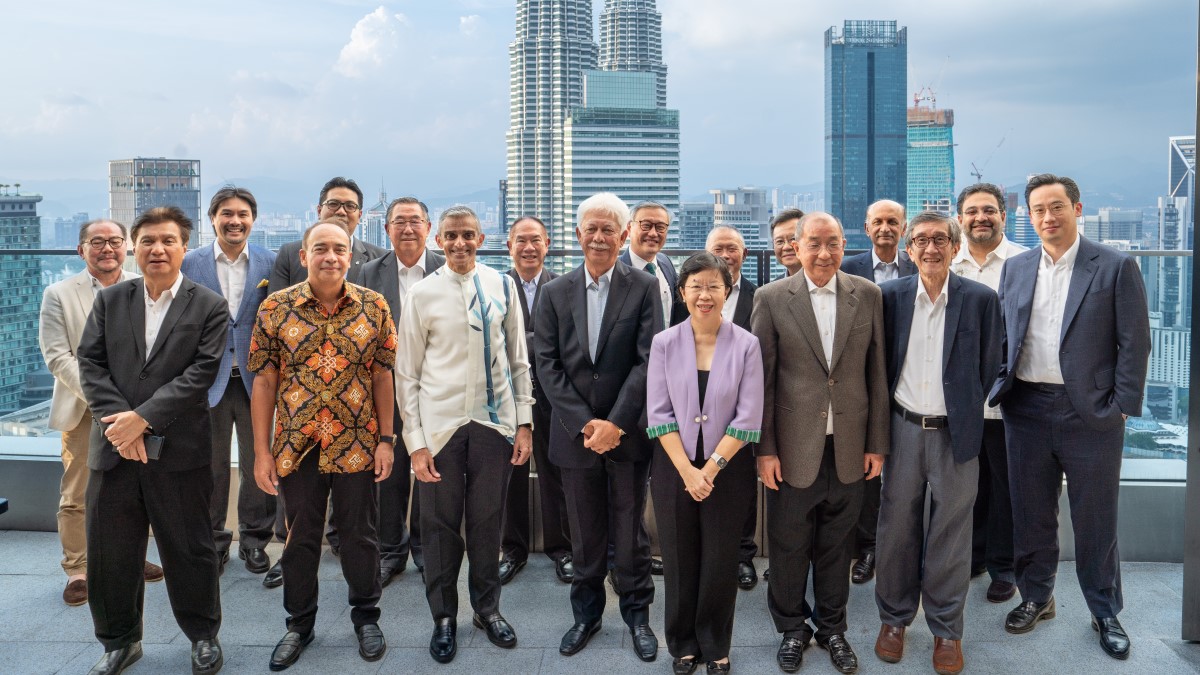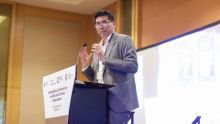Engaging with the SMU International Advisory Council Malaysia

Since its inception in 2020, the SMU IAC Malaysia has established various unique opportunities for SMU students. For example, SMU students now have the opportunity to embark on a Sustainability Study Mission to Malaysia each year. A partnership with Universiti Teknologi Petronas (UTP) has also opened the doors for initiatives such as bilateral study programmes and joint lectures and facilitated the forging of connections between students from Singapore and Malaysia.
Addressing the guests in her opening address, SMU President Professor Lily Kong also affirmed SMU’s continued commitment to bolster regionalisation efforts. “In September, SMU, in partnership with UOB, will launch the UOB Business Circle (Malaysian Chapter),” she stated.
“Via the UOB-SMU Asian Enterprise Institute, SMU will play a key role as knowledge partner in the Business Circle network by putting together a curriculum for emerging business leaders in Asia’s family-led firms, with a focus on how to run their businesses more effectively and accelerate business growth across Asia.”
SMU Vision 2025
During her address, Prof Kong also had the opportunity to share SMU’s progress on its Vision 2025. First unveiled in 2014, it aims to steer the institution towards becoming a world-renowned global city university. To do this, SMU has established specific strategies to provide transformative education, undertake cutting-edge research, and make meaningful impact in our urban society by tackling some of the critical challenges that we are confronted by today.
SMU also aims to implement actionable strategies that can add value to the future needs of not just Singapore, but also the regional economy and community.
“We are in the second phase of working towards the realisation of this vision. We are working intentionally to draw on the wealth of our faculty’s expertise to contribute to three priority areas: Digital Transformation, Sustainable Living and Growth in Asia,” Prof Kong shares, before addressing exactly what these strategic priorities mean.
SMU’s first strategic priority, Digital Transformation, recognises the extent to which digitisation and digitalisation impact the way we live, work, play and learn. The University aims to use its expertise in digital solutioning to spearhead cutting-edge ideas for business and public sector transformation.
One such result of this priority is the SMU-A*Star Joint Lab in Social and Human-Centred Computing, which was established in April 2022. One of the lab’s key research pillars, Human-AI synergy, studies how artificial intelligence and human intelligence can be combined to improve productivity, and adaptability of AI-based assistive technologies to human tasks in domains such as healthcare. With the increasing focus on AI, this research is especially relevant.
The University’s second strategic priority, Sustainable Living, is one that the University has consistently been committed to with its insights into the management of climate challenges, so useful to businesses navigating the legal, regulatory and financial frameworks that shape sustainable living.
This commitment continues to be recognised through projects such as Cooling Singapore, as well as by the recent nomination of SMU’s Associate Professor Winston Chow to UN’s IPCC Bureau as the developing country Co-Chair for IPCC Working Group (WG) II.
SMU’s third focus area is Growth in Asia, in keeping with its positioning as the go-to university for education and research on areas such as Asia’s economy, business and trade practices, social and political conditions of growth, legal and regulatory frameworks, as well as management of the impact of growth in Asia.
The University continues to build up faculty expertise on these dimensions of Asia’s growth. SMU also has been working to establish a network of overseas centres within the region, as a step towards the deepening of existing partnerships and empowering the forming of new collaborations which will collectively contribute to the growth of Asia. The first of SMU’s overseas centres was opened in Jakarta in December 2022, and two more are targeted to be launched in Bangkok and Ho Chi Minh city this year.
The importance of industry engagement
As her presentation drew to a close, Prof Kong reiterated the importance of industry engagement as an enabler to SMU’s success in its pursuit of the three strategic priorities.
“In today’s fast-moving economic and digital environment, teaching, learning and research must be closely integrated with industry needs to produce synergistic outcomes,” she said, emphasising that the University would continue to work closely with industry partners, such as the guests present, to understand their interests and needs.
“We invite partners to tap on this mutually beneficial relationship, where SMU’s talents, expertise and resources can be stepping stones for generating more innovations in various industries. I am confident these collaborations will open more pathways to pioneer applications and solutions for significant social impact.


